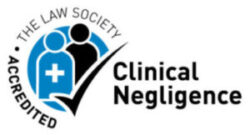Researchers at the Institute of Cancer Research (ICR) in London have developed new DNA tests for ovarian cancer that could help reduce the number of late cancer diagnosis cases in women with the disease.
DNA Tests Could Identify Family Members at Risk of Cancer
The new technique is actually a streamlining of existing methods, and is based on the notion of DNA testing, then subsequently tailoring treatment programs accordingly. The team focused on a set of genetic mutations referred to as BRCA families, known to be responsible for around 15% of the 7,100 ovarian cancers diagnosed in the UK each year. Some chemotherapy treatments are understood to be far more effective in patients with tumours caused by BRCA mutations, whilst other drugs known as PARP inhibitors are only effective in women with cancers caused by the mutations. As such, identifying the patient as one of the 15% to whom this applies vastly improves their prospects of successful treatment, with testing procedures actually made simpler and uptake increased to 100% in the researchers’ studies. What’s more, identifying a patient as positive for BRCA mutations also has implications for family members who could be at risk of ovarian, breast or prostate cancers for the same reason; potentially helping to combat delayed cancer diagnosis or medical misdiagnosis in many other fields.
DNA Tests Could Be Carried out Immediately
The move to test patients immediately for these genetic mutations marks a departure from current practice; whereby patients are only offered DNA testing with a separate genetics team following cancer diagnosis by a doctor. Currently only a small number of women accept the testing, and those who do must endure a 12-15 week wait. The new, ICR-pioneered technique takes advantage of progressions within the field of genetic testing – meaning it is now much faster and cheaper – to offer genetic testing with the original cancer doctor, without the need to be referred.
Positive Feedback for Ovarian Cancer Tests
Quickly embraced by medical professionals as a welcome step in tackling rates of delayed cancer diagnosis and treatment, the new testing method has already garnered a great deal of positive feedback.
Prof Nazneen Rahman, who led the ICR’s trial, issued the following statement to the BBC:
“It cuts off all that time on a waiting list and extra consultation. The feedback from patients has been overwhelmingly positive.”
Published in the Scientific Reports journal, the researchers’ findings also indicate that in addition to all patients having the relevant screening, they received their results in a quarter of the time expected under current practice, with the NHS standing to save £2.6m annually should the measures be instituted nationwide.
Prof Rahman summarised the benefits by stating:
“There would be 283 fewer cancers and 77 fewer deaths a year – it really does save lives and money…It’s very unusual to get a win-win all round that allows us to help more people but doesn’t cost more…It is likely the approach would also work for other cancers, such as those in the breast.”
Cancer Misdiagnosis Cases Could Be Significantly Reduced
The new study marks a potential turning point in the testing for and treatment of cancer nationwide, and could help combat rates of delayed or misdiagnosis of cancer for potentially thousands of patients.
Commenting on the news, Jason Brady, clinical negligence solicitor at Blackwater Law, said:
“Advances in testing that potentially provide for earlier diagnosis of cancer and more effective treatment are very much welcomed. In addition to providing savings for the NHS, taking steps to prevent late diagnosis of cancer should help to reduce the incidence of clinical negligence. As well as looking to prevent avoidable suffering this also looks to reduce the amount the NHS pays in clinical negligence compensation to patients and families whose lives are ruined by late diagnosis of cancer. Such advances in testing are therefore a very positive step forward.”
The Next Step After Delayed Diagnosis or Misdiagnosis
If you or someone you love has suffered unnecessarily as a result of late diagnosis, contact Blackwater Law clinical negligence solicitors today on 0800 083 5500. You will speak with a specialist clinical negligence solicitor who will advise you on the circumstances of your potential negligence case. You can ask any questions of the solicitor you speak with and you will quickly be told whether you may be entitled to make a claim for clinical negligence compensation.
All accepted cases for clinical negligence are operated by Blackwater Law clinical negligence solicitors on a “no win, no fee” basis.





